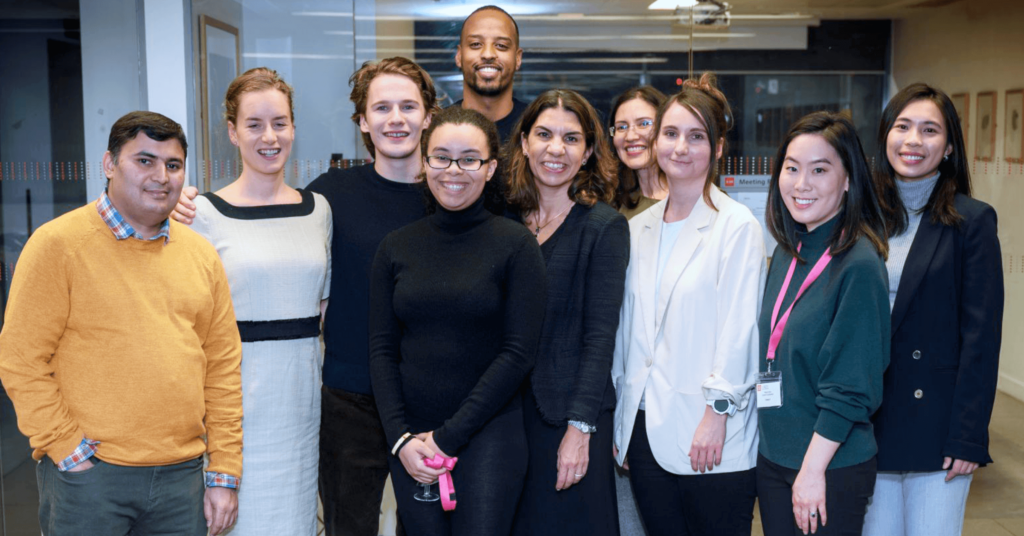
In the 2022 Future of Work Global Report, ‘interview presence’ was listed as the number one factor that stands out to HR managers and recruiters conducting candidate interviews. This came above ‘relevant work experience’ at number two and ‘skills match’ at number three.
With so many professionals looking for their next opportunity, the pressure to perform well in an interview is high. We’ve put together a few tips to help you feel more confident in your preparation and performance on the day.
1. Do your research
- Start by reading the job post several times to ensure you thoroughly understand what they’re looking for: Take note of specific words they use to describe the ideal person for the job. Recruiters tend to immediately cross off applicants who they think didn’t read the job description or requirements.
- Research the company to understand what they do and see if you share the same work values and culture: Look in their website’s ‘about us’ section to review the mission statement, company history, culture, products and services, and management structure. A solid grasp of their mission and operating style will help you both answer and ask questions in your interview more confidently.
- Browse their social pages: Visit their LinkedIn page to get up to speed on the company’s recent projects, as well as new hires, promotions, vacancies, and other companies they are connected to. Follow the company’s Facebook, Twitter and Instagram to learn more about their employees, events, achievements and customer interactions. This will give you a more holistic idea about the company and might even prompt talking points.
- You can also sign up for their newsletter and Google them to find out what others and the media have written about them: The more you know about the company, the better you’ll be able to position yourself as someone who will bring value to them.
2. Optimise your application
Submitting a job application is typically the first contact you have with a potential employer – and, hopefully, what will get you an interview in the first place. Whether you apply via email using your CV and a cover letter or apply online using a template, you have to ensure the content of your application is primed for the job you’re applying for.
- If the CV is run through an applicant tracking system (ATS), you should optimise your copy to include keywords used in the job posting: If not, the person vetting your CV needs to pick up that you are a skills match quickly. Ask someone with language skills to cast an eye over your application, or run it through Grammarly and ask a mentor or a friend in the industry to read it for clarity. For more info, read our top tips for boosting your CV.
- Many employers use applicants’ social media pages as a screening tool before hiring: Clean up all your social media pages, removing anything that can put you in a bad light. If you don’t have any social media profiles, consider at least a basic LinkedIn page with information about you, your qualifications and past experience.
- Write a cover letter that frames you as the perfect candidate: Keep your sentences short and include as much relevant information as you can efficiently fit into a few paragraphs. If the employer likes what they read, they will use the interview process to learn more about the goals or skills you mention in your cover letter.
- If you’re applying for a tech job, like a UX designer or software engineer, for example, your online portfolio will give interviewers an idea of your skill set and topics to discuss with you: List three to five projects with quantifiable descriptions and position yourself as a curious experimenter that has taken on and completed programming challenges.
3. Be organised for the screening call
If you’ve made it through the first round, the company could contact you for an initial phone or video call interview. Here they’ll verify your qualifications and experience and ask logistical questions such as where you’re located and if you’re willing to relocate if needed. They’ll also assess your overall motivation for the role, company and industry. This is your chance to give the recruiter confidence in your claims and assure them that you meet the requirements of the role and that you are a good fit for the company.
- Once the phone or video interview is scheduled, prepare a quiet, uncluttered place where you can take the call.
- If it’s a video call, ensure you are neatly dressed and groomed.
- Test your webcam, microphone and video chat software 15 minutes before the interview.
- Ensure you know the name of the person interviewing you, and have pen and paper ready to take notes.
- Listen carefully, don’t interrupt and be conversational and upbeat in your responses.
4. Map out your skills and previous experience to ace the behavioural interview
During the main interview process, interviewers will test your capabilities by asking you competency-based, behavioural and technical questions, giving you the chance to show you have the experience and skills needed to do the job well.
Competency-based job interview questions and answers relate to the skills required to perform the job. Your responses will typically be compared to a pre-identified list of answers. They will look at whether you have the hard skills needed to do the job, but also if you have the relevant soft skills—communication, teamwork, leadership, and attention to detail, amongst others.
Behavioural questions are used to gauge how you overcame/developed/resolved real-life scenarios and are designed to let the candidate talk. They could ask you to:
- Give an example of how you solved a problem in a creative way
- Describe your biggest achievement to date
- Explain why they should hire you
- Explain how you achieved a goal that seemed out of reach
- Describe a situation in which you successfully led a team
Prepare for these types of questions by going back to experiences you’ve had in the past, the actions you took and the results you achieved. Look at the tried-and-tested STAR methodology that guides you on how to tell a story by laying out the Situation, Task, Action, and Result.
For more info on preparing for these questions, look at these great job interview tips from a FourthRev Career Coach.
5. Keep calm during a technical interview
Those applying for a job in tech will likely be asked to complete a technical assessment or attend a technical interview. This may be a homework-type assignment or conducted via Skype or Zoom and a web-based code editor like CoderPad or Collabedit. Sometimes technical interviews are conducted in person, in which case you’ll use a whiteboard while standing in front of the interview panel.
Here are some examples of what they could ask of you:
- Give a technical presentation using PowerPoint.
- Write code in real-time or complete a coding test.
- Work out a tech problem on a whiteboard and present your solution to the panel.
To get an idea of how big tech companies conduct technical interviews, look at Google’s Job Interview Questions and the Asana Engineering Interview. The technical interview can be long, sometimes taking up most of the day. During the test, interviewers—members of the engineering team, a senior developer, or even the CTO—will want to hear you explain your thought process as you work through a problem. This gives them insight into how well you know your subject, your personality, your ability to solve problems in a structured and systematic way, and how well you work under pressure.
Bonus Tip: Make a lasting impression on interview day
Familiarise yourself with the interviewer’s face, name and title by looking them up on LinkedIn. Regarding the dress code, it’s a good idea to dress one level above the company’s dress code. For example, if the company allows jeans and T-shirts, you should dress in business casual.
Go through the directions the evening before, and give yourself enough time to get lost and still arrive 15 minutes early.
After the interview, send a general note of thanks to everyone. If you haven’t heard back after a week, send a short follow-up email reiterating your interest in the role and asking about potential next steps.
Work with a Career Coach to get 1:1 interview support
Career coaching plays a fundamental role in all of our Career Accelerator programmes. Every learner works with a dedicated coach to help them map out their career goals and plan their next move. We’ve had several examples of Career Coaches helping learners to secure fantastic career outcomes, including landing roles at major companies, doubling their salaries and pivoting into completely new positions and industries.
If you’d like to find out more about our Career Accelerators and how a Career Coach can help you prepare for your next job interview or career move, book a call with one of our Enrolment Advisors.
- Book a call to discuss the King’s UX Design Career Accelerator
- Book a call to discuss the King’s Product Management Career Accelerator
- Book a call to discuss the LSE Data Analytics Career Accelerator



